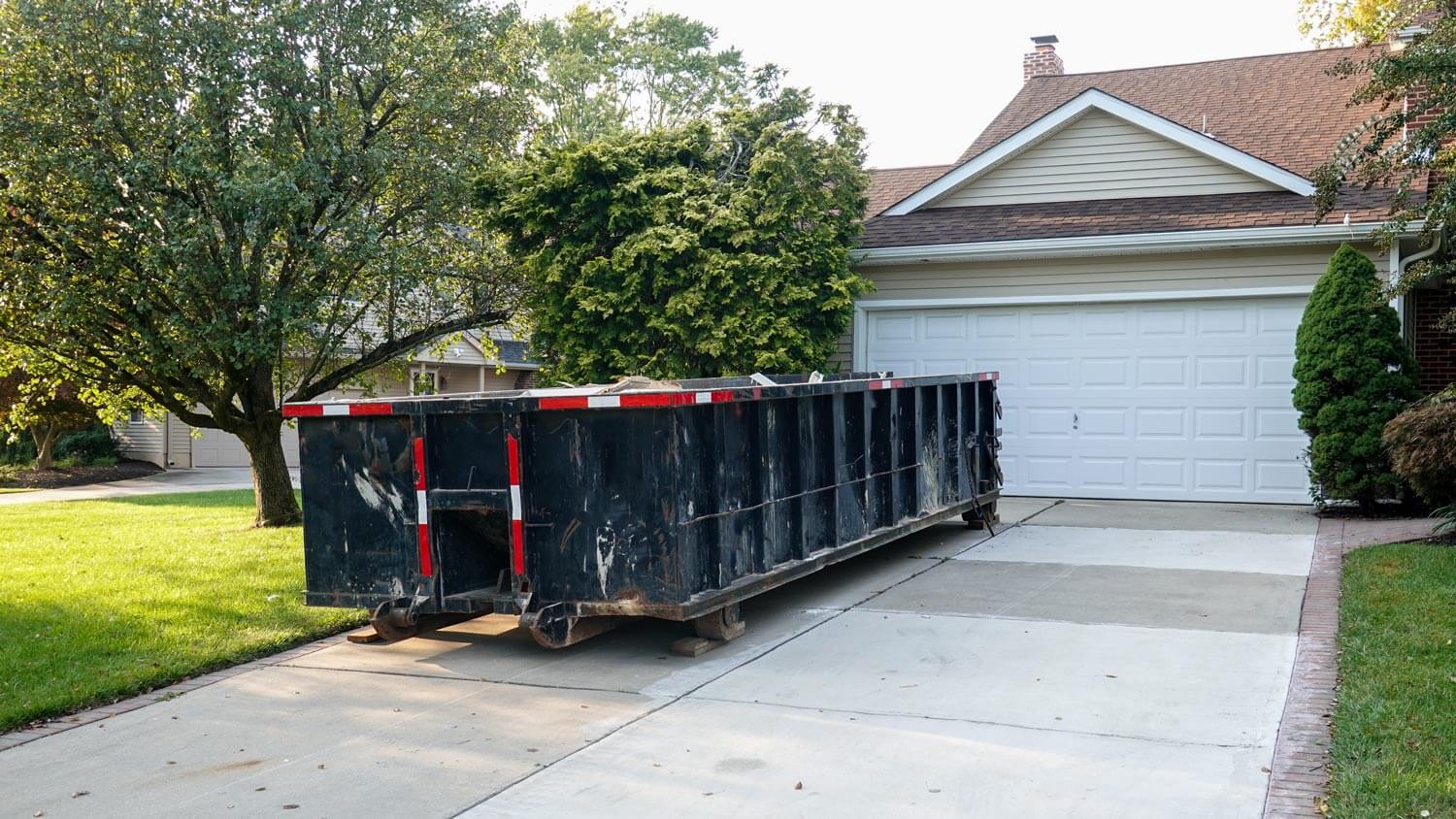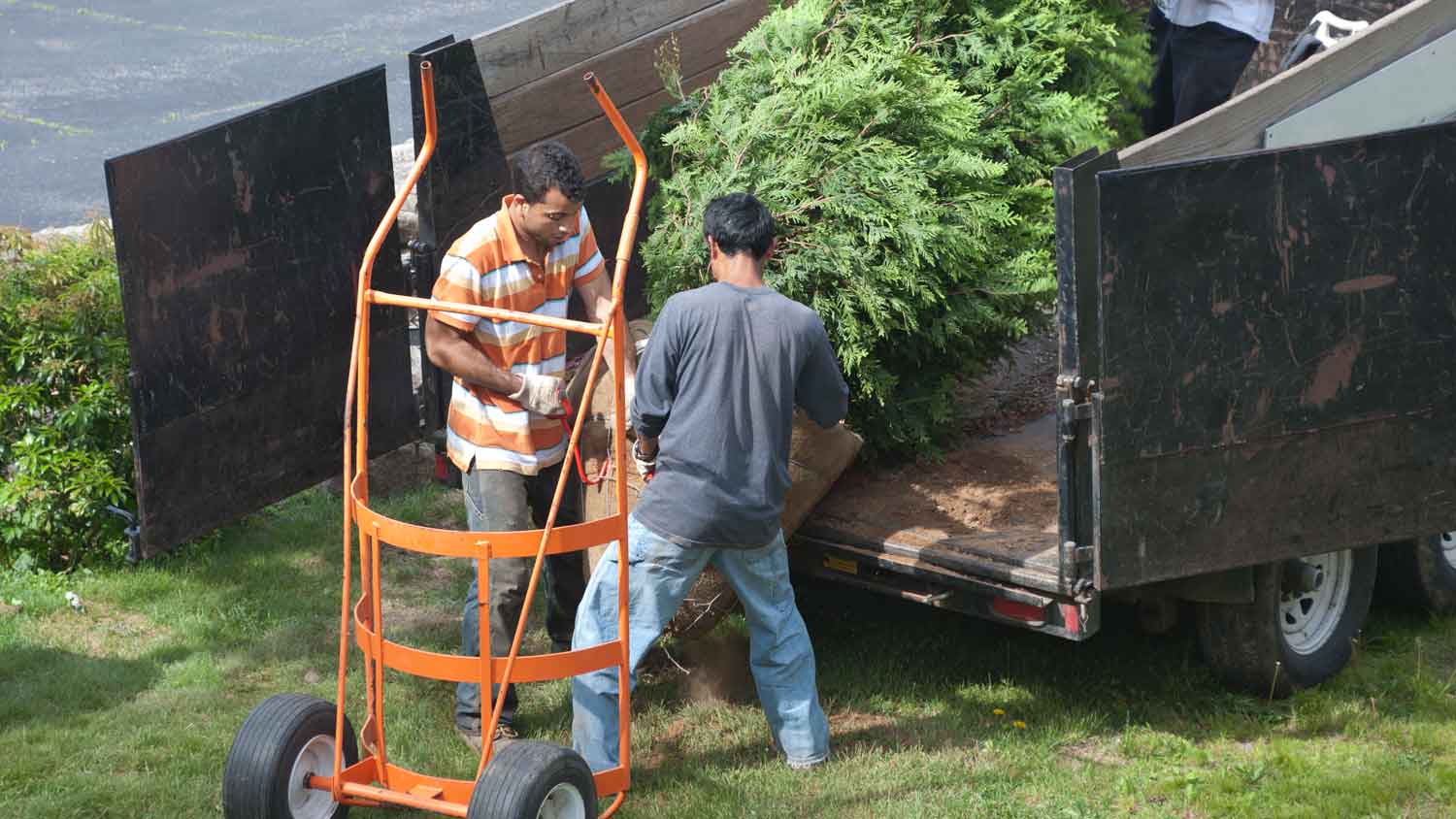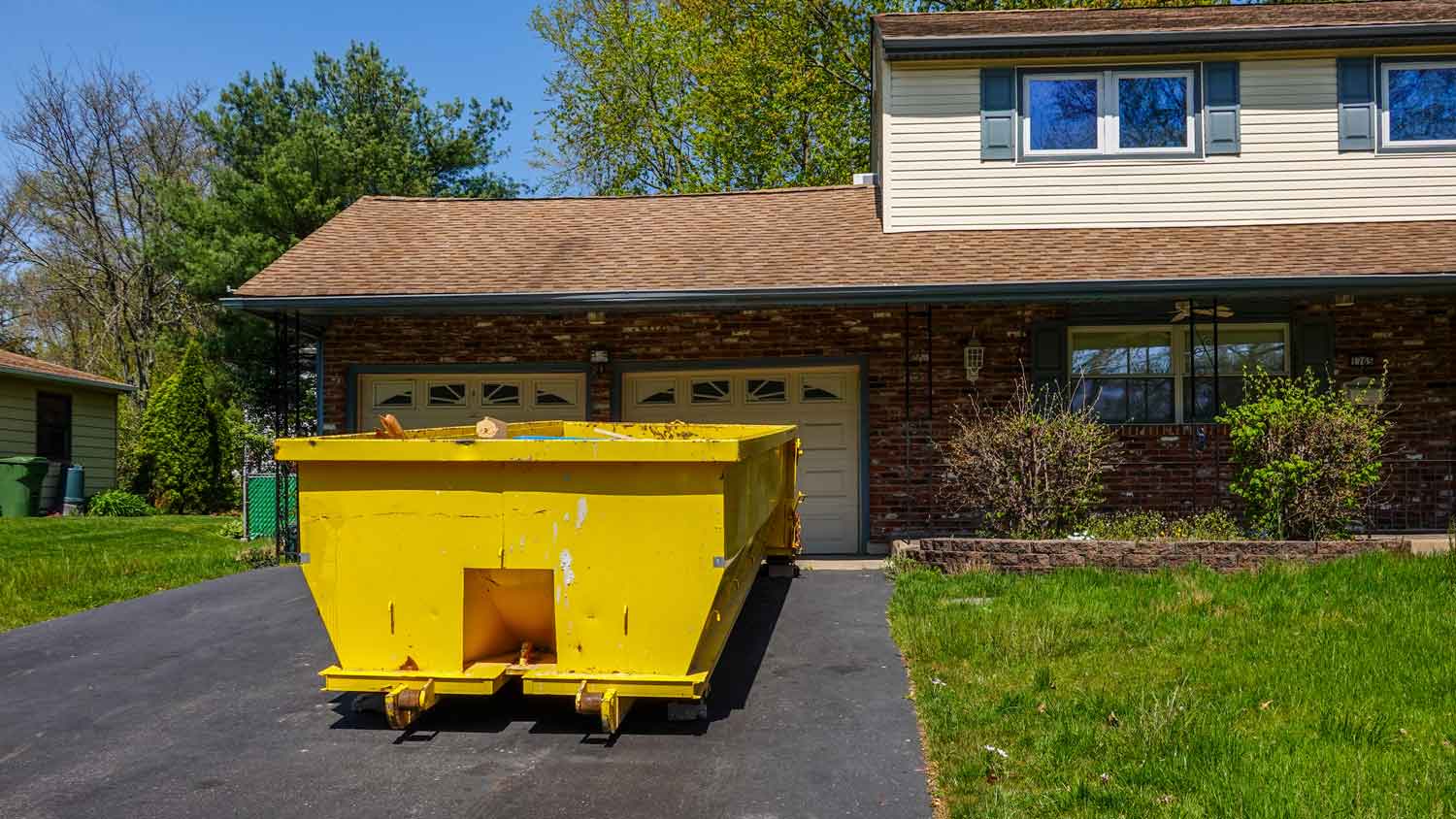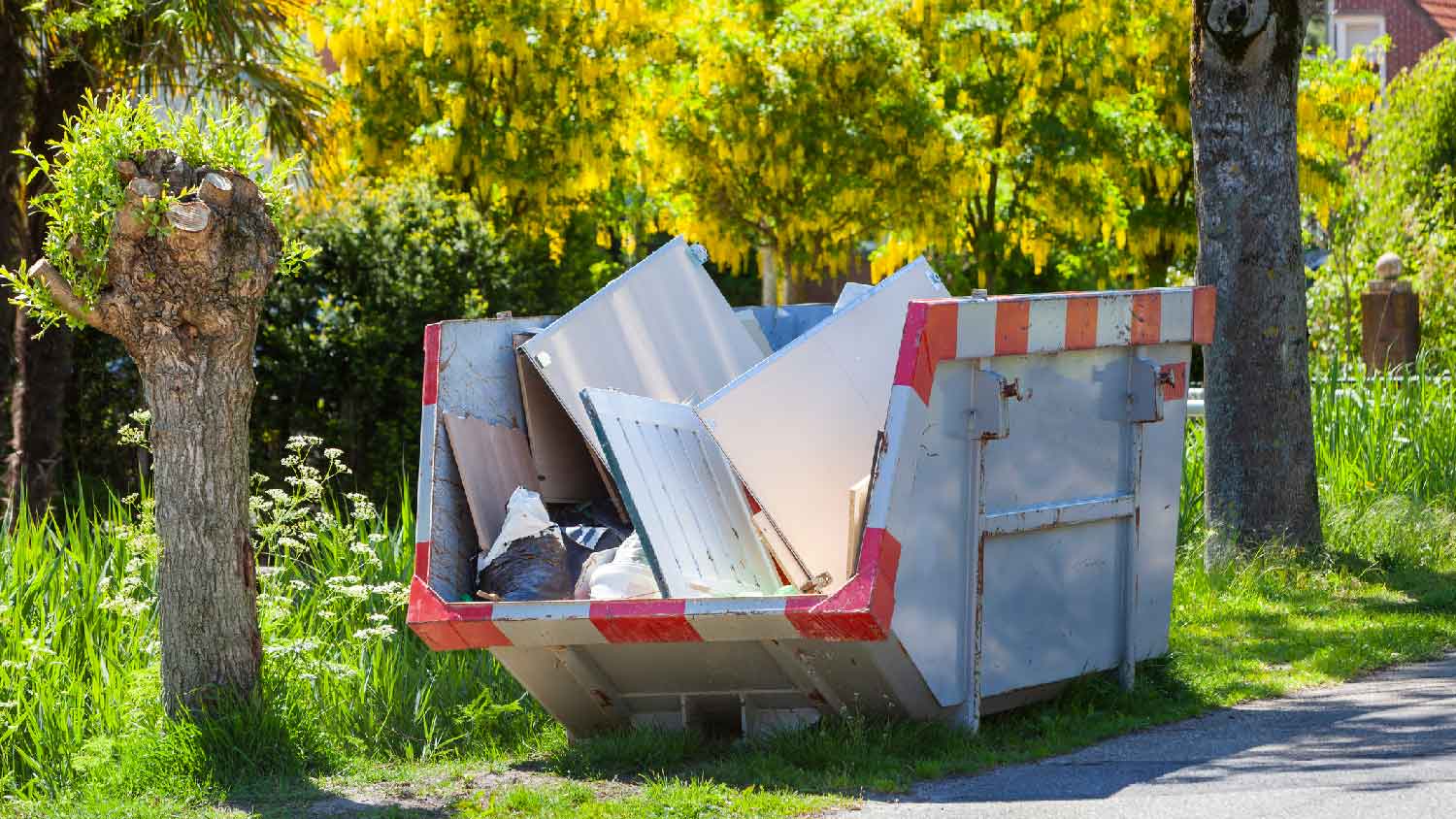
Renting a dumpster is more practical than you think. Use this guide to learn how much your rental will cost, the different dumpster types available, and tips to help you save.
Dumpster service costs depend on your project and location. Check with a local pro for your specific job.
The main factors impacting your dump trailer rental cost are trailer size, length of rental, and any delivery or pickup fees.
Renting a dump trailer gives you a convenient way to remove debris, yard waste, or construction materials from your property.
Weekly rates offer a lower per day cost, ranging from $500 to $900 per week or a medium-sized dump trailer.
Choosing the right trailer size and rental duration helps maximize your budget and avoid unnecessary expenses.
Renting a dump trailer lets you handle debris removal on your own schedule, saving on labor costs and giving you flexibility
This article was created using automation technology and thoroughly fact-checked and edited by an Angi Editor in accordance with our AI policy.
How much does it cost to rent a dump trailer? The average homeowner spends $380, with prices ranging from $80 to $2,000 depending on trailer size, rental duration, and location. Daily rates are most common, but weekly and monthly options are available for larger projects. Renting a dump trailer is a practical choice for tackling home cleanouts, landscaping, or renovation debris.

Knowing what drives the cost of renting a dump trailer can help you plan and avoid surprise fees. Let’s explore the main factors that affect your price.
There are several types of dump trailers available for rent, each designed for specific tasks and load capacities. Standard dump trailers are best for general debris and yard waste. Heavy-duty models can handle construction materials or heavier loads, while hydraulic lift trailers offer easier dumping for larger or bulkier items.
The type of trailer you choose affects the cost—heavy-duty or hydraulic models cost more per day than standard options. Consider your project’s needs: for example, a home cleanout may only require a standard trailer, while roofing debris or concrete removal could justify a heavy-duty or hydraulic lift trailer.
Dump trailer rental pricing is closely tied to trailer size, which is measured in cubic yards or by dimensions such as six-by-10 feet or seven-by-14 feet. Common sizes include six-yard, 10-yard, and 15-yard trailers. Larger trailers cost more to rent, but choosing the right size for your project helps you avoid paying for unnecessary capacity or risking overweight fees.
If you’re cleaning out a small garage, a six-yard trailer could be enough. For large remodeling projects or yard overhauls, a 10-yard or 15-yard trailer may be more cost-effective.
| Trailer Size (Cu. Yd.) | Average Daily Rate | Average Weekly Rate |
|---|---|---|
| 6 | $200–$300 | $350–$500 |
| 10 | $275–$575 | $500–$900 |
| 15 | $300–$800 | $800–$1,200 |
The materials you plan to haul play a major role in your total cost. Heavier debris, such as concrete or roofing shingles, can lead to overweight charges if you exceed the trailer’s listed weight limit. Many rental companies restrict hazardous materials, electronics, or appliances, and may charge extra fees for prohibited items.
Always clarify what types of debris are allowed before you rent, and ask about surcharges for specific material types.
Most dump trailer rentals are self-service, meaning you load and unload the trailer yourself. However, some companies offer optional labor services for an additional fee. Labor for loading or unloading is billed hourly, with rates ranging from $50 to $150 per hour depending on your region and the complexity of the job.
If you need help moving heavy items or want to save time, ask your dumpster rental provider about labor options. Keep in mind that adding labor increases your overall project cost.
Preparing your property for trailer delivery can add to your costs, especially if you need to clear space, move vehicles, or ensure easy access for the delivery truck. Rental companies may charge extra for difficult access, steep driveways, or the need for special equipment.
To keep prep costs in check, clear a level, accessible area before delivery and communicate any access concerns with your rental provider in advance.
Tipping is not required for most dump trailer rentals, but it is a thoughtful gesture if a delivery driver or contractor goes above and beyond—such as assisting with placement or providing extra help. If you choose to tip, $10 to $20 per delivery or 5% to 10% of the labor fee is a reasonable amount. Tipping is more common when labor is included rather than for standard drop-off and pickup.

While most costs are upfront, it’s wise to consider potential ongoing expenses during your rental period.
You are responsible for basic cleaning before returning the trailer. If the trailer is excessively dirty or damaged, rental companies may impose cleaning or repair fees. Standard maintenance, such as tire checks and brake inspections, is covered by the rental company, unless misuse or neglect is evident.
If you’re towing the trailer yourself, factor in fuel costs, which depend on your vehicle’s efficiency and the trailer’s weight. Towing a full dump trailer increases fuel consumption and adds wear and tear to your vehicle, especially for longer trips or rough terrain. Using the trailer beyond your agreed rental period will also result in additional daily or hourly fees.
Damage to the trailer during your rental—like bent axles, broken lights, or tire blowouts—can lead to repair charges. Repair costs are assessed based on the extent of the damage. Optional insurance or a damage waiver can help limit your liability for accidental damage.
Most rental companies offer optional insurance or damage waivers. These plans cover accidental damage, theft, or collision, but may exclude certain types of misuse. Check what is included and consider whether your homeowner’s insurance provides any coverage for liability or property damage related to the trailer.
Choosing between renting a dump trailer for DIY debris removal and hiring a professional junk removal service comes down to cost, convenience, and your willingness to do the work.
Renting a dump trailer and handling the loading yourself can save on costs compared to hiring a full-service junk removal company. You’ll avoid labor fees and can work at your own pace, but you’ll need a suitable towing vehicle and basic knowledge of safe loading and hauling practices.
DIY trailer rental requires time and effort, plus some risk if you’re not comfortable with towing or handling heavy debris. In contrast, hiring a pro eliminates the physical work and potential safety concerns but increases your total project cost. If your debris includes hazardous materials, large appliances, or you have limited time or mobility, hiring a professional may be the better option.
Add-on services and equipment can enhance your rental experience but will increase your total cost. Here are the most common add-ons with average prices:
Delivery and pickup service
Extended rental periods
Overweight or overfill disposal fees
Additional equipment (ramps, tarps, locks)
Insurance or damage waiver
Permit procurement assistance
Cleaning service for returned trailers
Let’s keep your project on budget with these practical ways to save:
Book in advance to secure the best rates, especially during busy seasons.
Choose the right trailer size for your project to avoid paying for unused capacity.
Compare quotes from multiple rental companies in your area.
Return the trailer clean and on time to avoid extra cleaning or late fees.
Bundle services like delivery and pickup for potential discounts.
Avoid restricted materials to prevent surcharges or penalties.
Consider renting during off-peak periods for lower rates.
Home is the most important place on earth, which is why Angi has helped more than 150 million homeowners transform their houses into homes they adore. To help homeowners with their next project, Angi provides readers with the most accurate cost data and upholds strict editorial standards. We extensively research project costs to develop the pricing data you see, so you can make the best decisions for you and your home. We rely on reputable sources, including the U.S. Bureau of Labor Statistics, academic journals, market studies, and interviews with industry experts—all to ensure our prices reflect real-world projects.
Want to help us improve our cost data? Send us a recent project quote to [email protected]. Quotes and personal information will not be shared publicly.
From average costs to expert advice, get all the answers you need to get your job done.

Renting a dumpster is more practical than you think. Use this guide to learn how much your rental will cost, the different dumpster types available, and tips to help you save.

A roll-off dumpster can help you dispose of large amounts of waste. Here’s what you need to know.

Renting a dumpster allows you to get rid of large amounts of waste. Learn what you can put in a dumpster rental for your next big home project.

What size dumpster do I need for furniture? It depends on a few factors. Learn more about how to determine the right capacity for your project.

Renting a dumpster is an excellent way to clean up during a large project. When you start looking, here are the dumpster rental questions you should be ready to discuss.

If you’re embarking on a junk removal project, it’s important to know where to put the dumpster. Read on for tips to find out which is best for you.